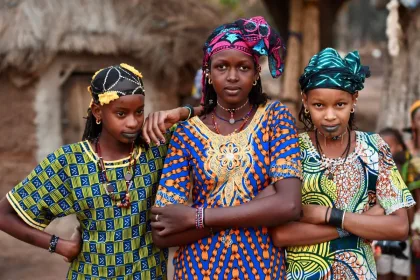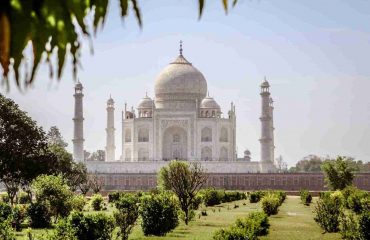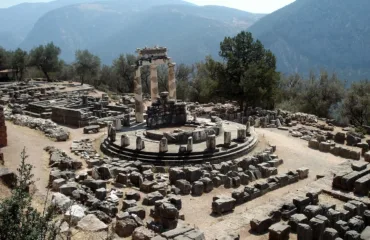
Exploring the Rich Tapestry of Côte d’Ivoire
Nestled along the Gulf of Guinea, Côte d’Ivoire is a country where history, culture, and tradition intertwine to create a vibrant and captivating destination. This land has witnessed the rise and fall of empires, the rhythm of ancestral ceremonies, and the colourful expressions of diverse local people. For travellers seeking authentic experiences, exploring Côte d’Ivoire offers an opportunity to immerse yourself in a world unlike any other.
Understanding the Name and Its Heritage
For many English speakers, Côte d’Ivoire is better known as the Ivory Coast. The official French name translates directly to “Ivory Coast” and reflects the region’s colonial history. During the era of European expansion, this coastline became a hub for trade, notably ivory, which shaped its identity and global connections. Today, international organisations and media increasingly use Côte d’Ivoire to respect the country’s chosen designation. At Our Local Tour, we also embrace the official name, honouring its cultural significance and historical roots.
Tracing the Footsteps of Empires
Walking through Côte d’Ivoire feels like stepping into a living history book. In Grand-Bassam, a UNESCO World Heritage site and former colonial capital, narrow streets lined with elegant colonial buildings evoke an era of European influence. Their faded grandeur tells stories of ambition and change. Beyond Grand-Bassam lies Abidjan, the country’s dynamic economic hub. Here, modern skyscrapers rise above bustling streets, yet reminders of the past remain. The Plateau district showcases urban growth, while St. Paul’s Cathedral stands as a striking symbol of Christianity’s enduring presence in Ivorian culture.
Dance, Music, and Festivals
Culture in Côte d’Ivoire pulses with rhythm and colour. Dance and music are central to its identity, with each ethnic group contributing unique traditions. The Zaouli mask dance of the Guro people, with its hypnotic beats and graceful movements, is a spectacle that narrates stories passed down through generations. Festivals are frequent and lively. The Yam Festival, celebrated by the Bete people, honours a crop vital to local life. Meanwhile, the Goli Festival of the Wan people brings communities together in vibrant displays of unity and heritage. When exploring Côte d’Ivoire, you may find yourself swept into these celebrations, each offering a glimpse into the soul of the nation.
Tribal Traditions and Artistic Heritage
Côte d’Ivoire is home to more than 60 ethnic groups, each with distinct languages, customs, and artistic expressions. The Senufo people are renowned for intricate woodcarvings and spiritual symbolism, while the Dan people craft masks that embody ancestral spirits and mark rites of passage. Visiting rural villages reveals traditions that endure despite modern influences. The Krou people practise scarification as a sign of courage, while the Baule artisans create masks that serve as cultural icons rather than mere decorations. These encounters highlight the resilience and creativity woven into Ivorian life.
Preserving Heritage Amid Change
Globalisation and urbanisation pose challenges to traditional practices, yet Côte d’Ivoire strives to protect its cultural legacy. Museums and cultural centres play a vital role in this effort. The National Museum in Abidjan houses artefacts that trace the country’s journey through time, offering visitors a deeper understanding of its heritage. Local initiatives also promote traditional crafts and storytelling, ensuring younger generations remain connected to their roots. These efforts reflect a commitment to preserving identity while embracing progress.
Exploring Côte d’Ivoire’s Natural Beauty
Beyond its cultural richness, Côte d’Ivoire boasts stunning landscapes. Golden beaches stretch along the Atlantic coast, while lush rainforests shelter diverse wildlife. National parks such as Taï and Comoé offer opportunities for eco-adventures, from trekking through dense forests to spotting rare species like pygmy hippos and chimpanzees. The country’s varied terrain invites exploration. Whether you’re hiking in mountainous regions or relaxing by tranquil lagoons, nature here feels both untamed and welcoming.
Practical Tips for Your Journey
If you plan on exploring Côte d’Ivoire, consider these tips:
- Best time to visit: November to March offers dry weather and comfortable temperatures.
- Cultural etiquette: Dress modestly in rural areas and learn a few French phrases to connect with locals.
- Health precautions: Vaccinations for yellow fever and malaria prevention are essential.
- Travel style: Escorted tours provide safety and local insight, making them ideal for first-time visitors.
Why Côte d’Ivoire Should Be on Your List
Côte d’Ivoire is more than a destination, it is an experience that blends history, culture, and natural beauty. From colonial echoes in Grand-Bassam to the vibrant streets of Abidjan, from tribal festivals to serene beaches, every moment here tells a story. In conclusion, exploring Côte d’Ivoire means embracing diversity and discovery. It is a journey that invites you to celebrate traditions, connect with communities, and marvel at landscapes that remain largely untouched by mass tourism. Pack your curiosity, bring an open mind, and let Côte d’Ivoire reveal its wonders.



